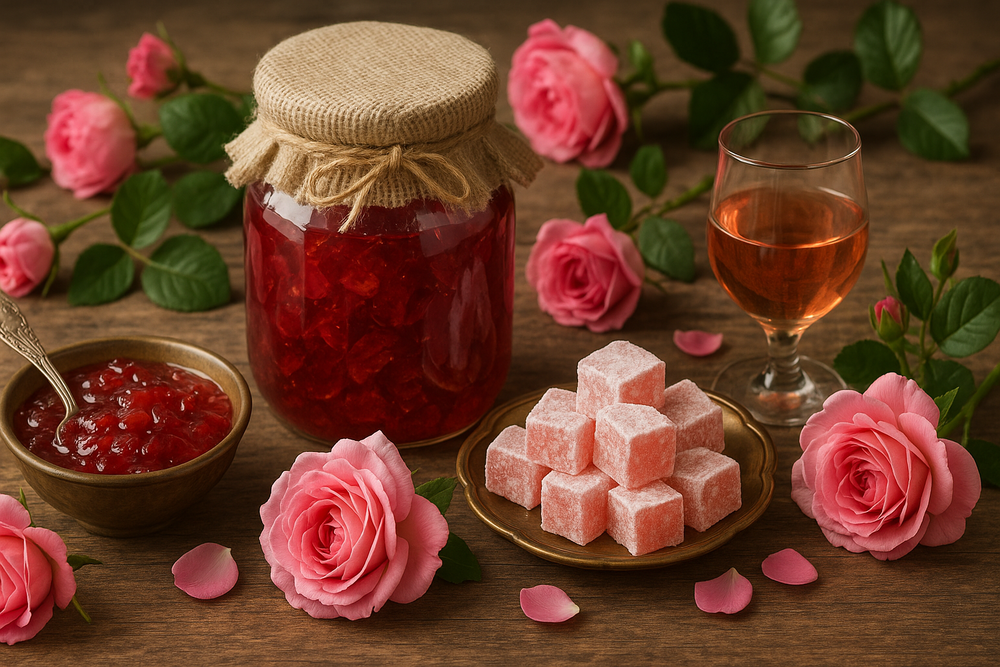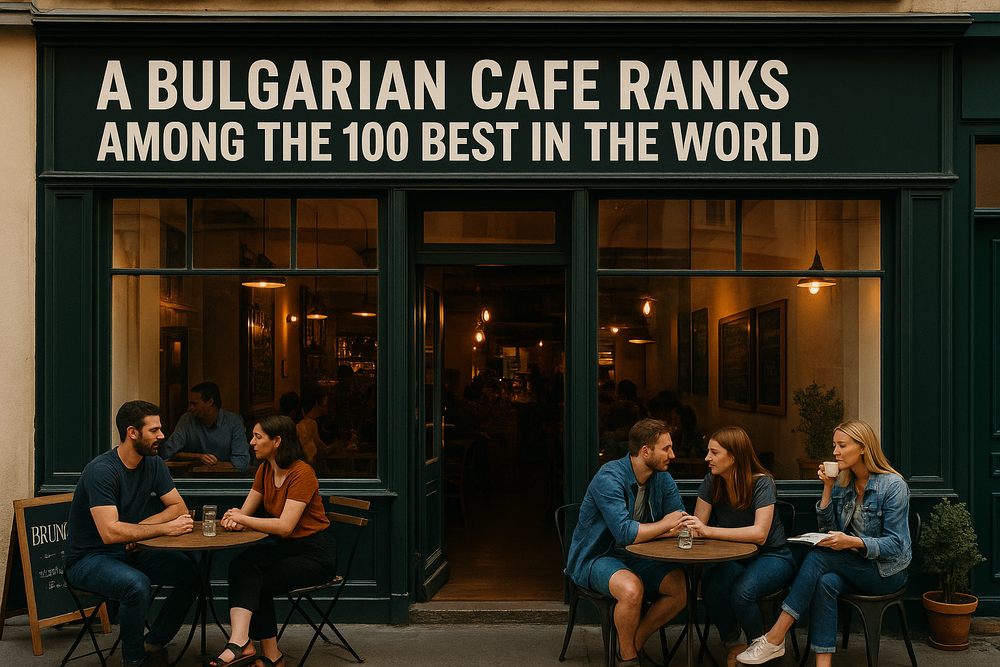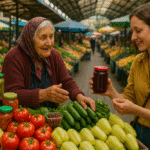
Cooking with Roses: Bulgaria’s Edible Flower Traditions
Nestled between the Balkan Mountains and the Sredna Gora range lies Bulgaria’s famed Rose Valley — a place where the air is thick with the scent of Damask roses each spring. While most know Bulgaria as one of the world’s largest producers of rose oil, fewer are aware of the country’s deep-rooted culinary traditions involving this fragrant flower. For centuries, roses have not only perfumed cosmetics and perfumes but also found their way into the Bulgarian kitchen in unique and flavorful ways.
A Fragrant Legacy
Bulgaria’s relationship with the rose began in the 17th century, when Rosa Damascena was first cultivated in the region. Thanks to the valley’s unique climate and soil, the roses thrived, producing oil of exceptional quality. While rose oil production became a major industry, local communities also began experimenting with roses as an ingredient — creating edible delicacies that became part of the country’s cultural heritage.
Rose Petal Jam: A Taste of the Valley
Perhaps the most iconic example of rose-based cuisine is rose petal jam, known in Bulgaria as confitûr ot rozi. Made from fresh Damask rose petals, sugar, lemon juice, and a touch of water, this jam is prized for its intense aroma and delicate floral taste. The petals are handpicked in the early morning hours when their fragrance is strongest. After a careful wash, they’re simmered slowly with sugar until they release their color and flavor, resulting in a syrupy preserve that is as visually beautiful as it is delicious.
Traditionally served on toast, alongside yogurt, or even spooned into tea, rose petal jam is a staple in many Bulgarian households — especially in the regions around Kazanlak and Karlovo, where rose growing is a way of life.
Rose-Infused Lokum: A Sweet Carryover
Another beloved treat is rose-flavored lokum, or Turkish delight. While lokum is popular throughout the Balkans, Bulgarian varieties often feature local rosewater, giving the chewy confection a distinctive floral twist. The base of cornstarch and sugar becomes a canvas for the essence of roses, resulting in soft, blushing cubes often dusted with powdered sugar. Served at holidays, weddings, and family gatherings, rose lokum is a nostalgic bite of Bulgaria’s Ottoman-influenced past.
Rose Liqueur: Liquid Elegance
Roses even make their way into Bulgarian glasses in the form of rose liqueur — a rare but cherished beverage. Steeping rose petals in rakia (Bulgaria’s traditional fruit brandy) or neutral spirits, along with sugar and sometimes vanilla, creates a beautifully aromatic liqueur with a golden-pink hue. Sipped slowly as a digestif or used in cocktails, it captures the fleeting essence of rose season in liquid form.
Culinary Preservation of Culture
These recipes are more than just delicious — they represent a preservation of local identity and craftsmanship. Many Bulgarian families still pass down rose-based recipes through generations, keeping traditions alive despite modernization. With the recent resurgence of interest in edible flowers and natural ingredients, Bulgaria’s rose cuisine is gaining renewed appreciation among chefs and culinary travelers.
So, the next time you think of roses, consider not just their scent, but their flavor. In Bulgaria’s Rose Valley, the petals are not just admired — they’re savored.





